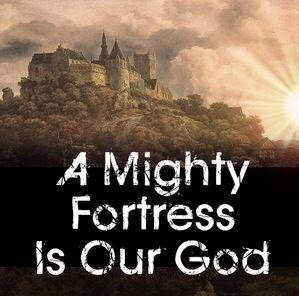1 Awake, awake, put on your strength, O Zion; put on your beautiful garments, O Jerusalem, the holy city; for there shall no more come into you the uncircumcised and the unclean. 2 Shake yourself from the dust and arise; be seated, O Jerusalem; loose the bonds from your neck, O captive daughter of Zion. 3 For thus says the LORD: “You were sold for nothing, and you shall be redeemed without money.” 4 For thus says the Lord GOD: “My people went down at the first into Egypt to sojourn there, and the Assyrian oppressed them for nothing. 5 Now therefore what have I here,” declares the LORD, “seeing that my people are taken away for nothing? Their rulers wail,” declares the LORD, “and continually all the day my name is despised. 6 Therefore my people shall know my name. Therefore in that day they shall know that it is I who speak; here I am.” 7 How beautiful upon the mountains are the feet of him who brings good news, who publishes peace, who brings good news of happiness, who publishes salvation, who says to Zion, “Your God reigns.”
Isaiah 52:1-7
If the Lord were to ask you what part of your body you’d like for Him to make beautiful, you’d probably have a ready answer. Our world presses its own standards of beauty onto us and we are quick to embrace them. We want beautiful faces for all to see our beauty, beautiful hair to appear youthful, beautiful breasts to be alluring, and beautiful abs to convey our fitness and strength. But God chooses something better for us; He gives us beautiful feet.
Our feet are beautiful because Christ has fitted them with His Gospel of peace. But what makes having beautiful feet so important? In the first place He has given us beautiful feet to stand. As the people of God in the world, we must endure many difficulties, hardships, and even persecutions. The Lord gives us the feet to stand in the face of these things. But we are called to do more than stand; we are called to go. With our beautiful feet we carry the Gospel of Peace to our broken and dying world. As we go, our feet are reflections of the most beautiful of feet, the feet of Jesus.
The beautiful feet of Jesus are feet of flesh that brought God’s love into our world. They are dusty feet that walked the paths that we walk and experienced all of the hardships, troubles, and temptations that we experience. They are feet washed by the tears of one who had used her beautiful body in ugly ways welcoming those tears and washing them away. His beautiful feet are feet that served, even serving in the lowly way of washing others’ feet. Above all, His feet carried the Cross to Calvary and were pierced for our transgressions. The blood that flowed from the beautiful feet of Jesus has taken away the ugliness of all of your sins.
Your feet have been made beautiful to carry the Good News of Jesus to those who are perishing because they either do not know the Name of the Lord or they despise it. They may take you near or far. You may be shod with snow boots, flip-flops, or go barefoot in the places God has chosen for you. Wherever your beautiful feet go and whatever you may experience in those places, you can be certain that you will stand because your God reigns. Rejoice, be glad, be confident; God has given you beautiful feet.







